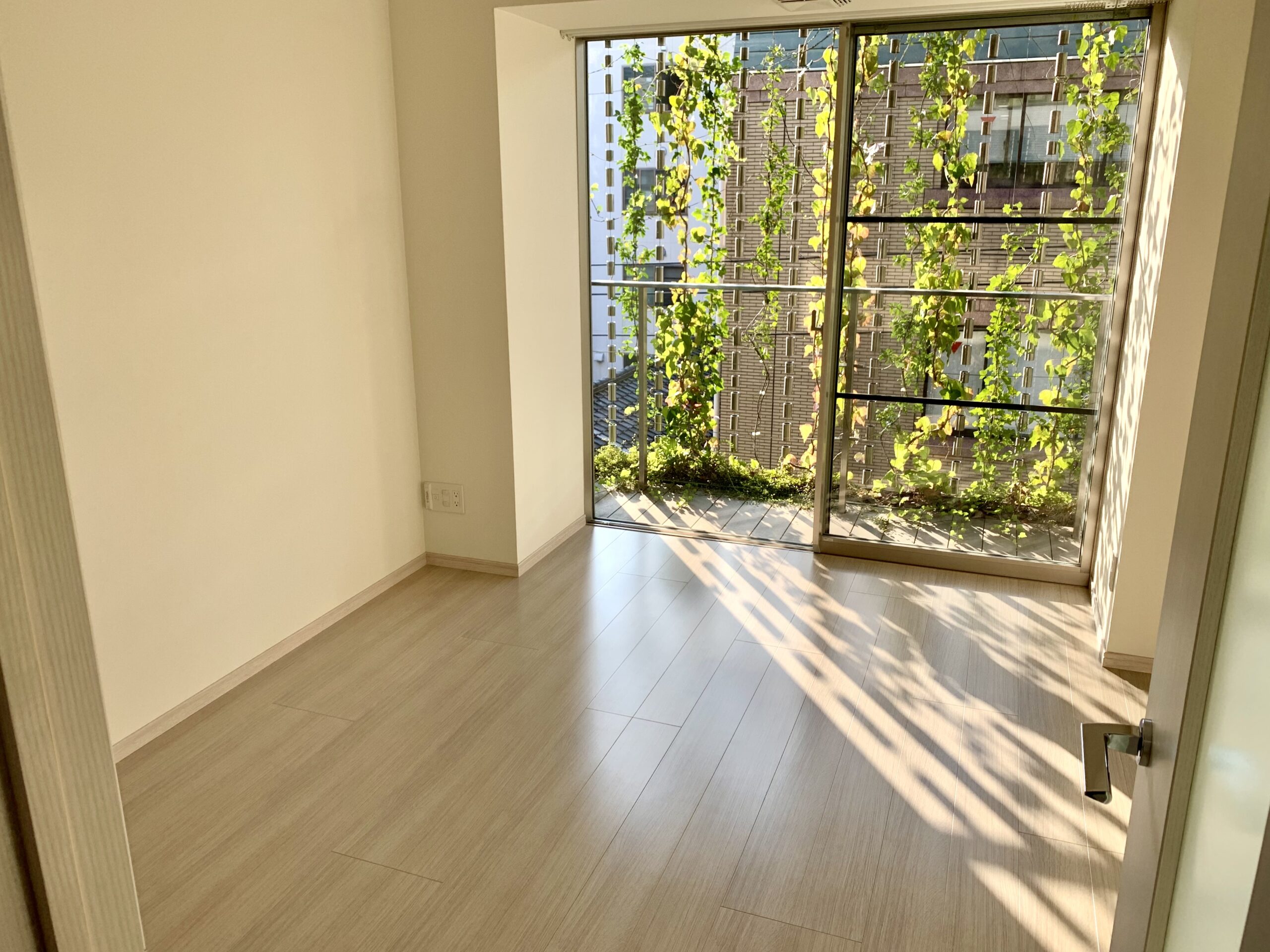Shared Accommodation in Tokyo: Top Tips for Finding the Perfect Share House in Japan

“Where can I find affordable housing in Tokyo?” “Is share house living right for me?” “How do I navigate the Japanese housing market as a foreigner?” These are common concerns for many expatriates and newcomers to Japan.
The good news is that share houses offer an excellent solution for affordable, hassle-free living in Japan, combining cost-effectiveness with built-in social connections and minimal entry barriers.
In this article, we will guide you through the essentials of selecting the perfect share house in Japan, offering insider tips, must-know advice, and an overview of what shared accommodation can truly offer in Tokyo.
Understanding Shared Accommodation in Tokyo
What is a Share House?
In the vibrant city of Tokyo, where tradition meets modernity, shared accommodation—commonly known as a share house—provides an alternative to conventional apartments. A share house is a rental property where residents share common areas such as the living room, kitchen, and bathrooms, while each tenant has their own private bedroom. This arrangement fosters a communal lifestyle, contrasting sharply with the privacy-focused nature of apartment living. The appeal of share houses lies in their affordability, social atmosphere, and the opportunities they create for cultural exchange.
Share houses attract a diverse mix of residents, including young professionals, students, and expatriates. These accommodations are typically fully furnished, which alleviates the burden of moving large furniture for short- or medium-term stays. Unlike traditional apartments, share houses often feature flexible rental terms and simpler contracts, making them an attractive choice for foreigners who may find Japan’s rental processes complicated.
Types of Share Houses Available
Tokyo boasts a wide variety of share houses to meet different needs and preferences. Themed share houses are particularly popular, including options for language exchange, artist collectives, and homes dedicated to fans of specific cultures or hobbies. These themed environments encourage shared interests among residents, often leading to a more cohesive community.
Standard share houses are also widely available, focusing on location and affordability. These houses are scattered throughout Tokyo, providing essential amenities in a comfortable living space. For those seeking more privacy, some share houses offer ensuite bedrooms or smaller units within larger properties. Higher-end share houses may feature luxury amenities such as gyms, rooftop spaces, or stylish interior designs, catering to individuals willing to pay a bit more for added comfort and an upscale living experience.
Discover Tokyo’s vibrant lifestyle with Oakhouse! From trendy Shinjuku to historic Asakusa, find your perfect share house or furnished apartment. Enjoy flexible contracts, fully-equipped spaces, and a welcoming community. Ideal for students, professionals, and expats seeking affordable, social living in Japan’s capital.
Affiliate Disclosure: We may earn a commission for bookings made through our Oakhouse links, at no extra cost to you.
Popular Areas for Shared Accommodation in Tokyo
Share houses can be found all over Tokyo, but certain areas are particularly popular due to their vibrant atmosphere and convenience:
- Shinjuku (新宿) is famous for its lively nightlife and business districts, making it a favored spot for young professionals who enjoy a dynamic urban environment.
- Shimokitazawa (下北沢), beloved by creative individuals and students, offers a bohemian vibe with its numerous thrift shops, live music venues, and cozy cafes.
- Nakano (中野) strikes a perfect balance between residential tranquility and urban excitement, making it especially appealing to younger expatriates for its affordability and proximity to central Tokyo.
- Asakusa (浅草), located in the heart of traditional Tokyo, provides a quieter atmosphere surrounded by historical sites while still being conveniently close to major train lines.
With such a wide range of types and locations, share houses in Tokyo offer accommodation solutions that cater to various lifestyles and budgets.
Benefits of Choosing a Share House in Japan
Cost-Effectiveness and Affordability
One of the primary advantages of choosing a share house in Japan is the significant cost savings compared to renting a traditional apartment. In a city like Tokyo, where living expenses can be substantial, share houses offer an economical solution. The monthly rent for a share house typically includes utilities such as electricity, water, and internet, which means residents can better manage and predict their monthly expenses. Moreover, initial costs such as deposits and key money are generally lower or sometimes non-existent in share houses, making it financially accessible for newcomers to Japan.
This cost-effectiveness extends beyond monetary savings; share houses often come fully furnished, sparing residents from having to purchase furniture or appliances. It’s important for foreigners to understand that most rental properties in Japan typically do not come with furniture or appliances. This can be a surprise for those who are used to fully furnished accommodations in their home countries. As a result, many newcomers may need to invest in essential items like beds, refrigerators, and kitchenware after moving in.
Fortunately, share houses often address this issue by providing fully furnished living spaces, which can significantly ease the transition for international residents. This not only helps to reduce initial costs but also simplifies the moving process, making share houses a practical choice for those looking for temporary or short-term stays.
For more insights on this topic, you can check out related blogs that discuss the differences in rental practices and tips for settling into a new home in Japan.

Social Connections and Community Living
Living in a share house provides a unique opportunity to build social connections and immerse oneself in a communal environment. Share houses foster a sense of community as residents are encouraged to interact and collaborate in shared spaces, such as kitchens and living rooms. These settings naturally facilitate friendships and networking among a diverse group of individuals. For expatriates, this social aspect can be invaluable; it opens doors to meeting like-minded people, sharing experiences, and learning different cultural perspectives.
Furthermore, many share houses organize regular events and communal activities. These can range from movie nights and cooking classes to cultural exchange evenings, which enhance the social experience and allow residents to engage with each other beyond day-to-day interactions. For individuals new to Tokyo or looking to broaden their social circles, the community living aspect of share houses can be a major benefit.

Ease of Setup and Minimal Entry Barriers
Another draw of share houses is the ease of setup and minimal entry barriers. Traditional rental agreements in Japan often involve complex paperwork, background checks, and substantial financial commitments like key money and co-signer requirements. In contrast, share house contracts are much simpler and straightforward, often requiring just a security deposit and a month’s rent upfront.
This simplicity is particularly appealing to foreigners and newcomers who might find the standard Japanese rental system daunting. The straightforward contracts and inclusivity of share houses lower the entry barriers, making it easier for individuals to secure housing without navigating a maze of legal requirements and cultural nuances. This makes share houses a practical choice for those who may plan to stay in Japan for varying lengths of time, from a few months to several years.
Exploring Housing Policy in Japan
In recent years, Japan’s housing landscape has evolved to address the challenges of urbanization, population decline, and changing lifestyles. While share houses are primarily operated by private companies, their growing popularity aligns with broader societal and urban housing trends.
In cities like Tokyo, where space is limited and housing costs remain high, share houses offer an efficient and flexible solution to accommodate diverse demographics, including young professionals, expatriates, and students. The Japanese government has increasingly recognized the importance of alternative housing models, such as share houses, in addressing urban density and promoting sustainable living.
Although there are no specific policies directly targeting share houses, urban planning strategies often emphasize the efficient use of existing infrastructure and the need for affordable housing options. Share houses naturally fit into these goals by maximizing the use of residential properties and reducing the per-person housing footprint.
Moreover, share houses align with Japan’s cultural values of community and social harmony. These living arrangements foster interaction among residents, creating opportunities for cultural exchange and mutual support. This is particularly relevant in a society facing challenges such as social isolation and an aging population.
For younger generations and newcomers to Japan, share houses provide not only affordable housing but also a sense of belonging in an increasingly individualistic world. As Japan continues to adapt to demographic and economic shifts, share houses are likely to play a growing role in the housing market. Their ability to combine affordability, flexibility, and community living makes them a practical and socially enriching solution for modern urban life.
Disadvantages of Living in a Share House
While share houses offer many benefits, there are also some drawbacks to consider. One significant disadvantage is the lack of privacy. Living with multiple housemates means that personal space can be limited, which may lead to discomfort for those who value solitude. Additionally, differing lifestyles and habits among residents can result in conflicts, such as noise levels or cleanliness standards.
Another potential issue is the shared responsibility for household chores. While this can foster a sense of community, it may also lead to frustration if some housemates do not contribute equally. Furthermore, the rules and regulations set by the house can feel restrictive, especially for those used to living independently.
Lastly, finding the right share house can be challenging, as not all houses are well-maintained or have compatible housemates. It’s essential to thoroughly research and visit potential share houses to ensure a good fit.

How to Find the Perfect Share House in Tokyo
Researching Online and Offline Listings
Finding the ideal share house in Tokyo begins with thorough research across both online and offline platforms. Online resources are invaluable, offering a wide array of listings and detailed information about available share houses. Websites dedicated to share house rentals in Tokyo typically provide tools to filter searches based on criteria such as location, budget, and amenities. This helps to streamline the search process, ensuring potential residents can find options that align with their preferences.
The most reliable websites for share house hunting include:
These platforms typically offer English interfaces and detailed property information, including photos, floor plans, and current resident profiles. Most importantly, they provide real-time availability and pricing updates, making your search more efficient.
Live, Connect, Grow: Your Gateway to Japanese Living with Oakhouse
Discover a unique living experience in Japan with Oakhouse, the leading provider of share houses and furnished apartments since 1992. Perfect for international students, working professionals, and expats, Oakhouse offers:
- A wide range of accommodation options, from shared rooms to private apartments
- Fully furnished spaces with essential amenities
- Convenient locations across Tokyo and other areas
- Flexible contracts starting from just one month
- A vibrant community with regular events open to residents and non-residents alike
- Opportunities for cultural exchange and personal growth
Why Choose Oakhouse?
Oakhouse makes your move to Japan hassle-free with:
- No key money or guarantor required
- Free Wi-Fi
- Inclusive utility bills
- Weekly cleaning of common areas
Your Perfect Home Awaits
With over 6,000 rooms available, Oakhouse provides a supportive environment where you can easily make friends and immerse yourself in Japanese culture. Prices start from around ¥50,000 per month for shared rooms and ¥70,000 for private rooms.
Ready to Start Your Japanese Adventure?
Join the Oakhouse community today! (Please note that an application process and age restrictions apply.)
Affiliate Disclosure: This page contains affiliate links for Oakhouse. When you click on these links and make a qualifying booking, we may receive a commission at no additional cost to you. We only recommend services we believe will provide value to our readers.
Using Platforms like Reddit and Local Forums
Platforms like Reddit and local forums like GaijinPot and Tokyo Craigslist are excellent resources for gaining insights and recommendations from current or previous residents. These platforms host a wealth of discussions where users share their experiences, give advice, and sometimes post listings of share houses they’ve enjoyed. Engaging in these communities can provide prospective tenants with valuable, real-world insights into living conditions, landlord reputations, and the overall atmosphere of different neighborhoods.
Local forums, particularly those aimed at expatriates in Japan, also offer guidance tailored to the unique perspectives and concerns of foreigners. These spaces often have members who can answer specific questions regarding the nuances of Tokyo’s share house scene, offering personalized advice and recommendations.
Visiting Potential Share Houses
Once initial research has been conducted, visiting potential share houses in person is a crucial next step. Physical visits allow prospective tenants to get a true sense of the environment, checking for cleanliness, safety, and overall fit with their lifestyle needs. During visits, it’s advisable to observe the communal areas and the quality and functionality of shared amenities, as well as to meet current residents, if possible, to gauge the community vibe.
Visiting also provides an opportunity to examine the neighborhood. Consider factors such as noise levels, convenience to public transportation, and proximity to daily necessities like supermarkets and healthcare facilities. This firsthand experience can often make the difference between choosing a house that merely looks good on paper and one that truly meets personal expectations.
Questions to Ask Before Moving In
Before finalizing any decisions, it’s essential to ask the right questions. Inquire about the terms of the contract, what is included in the rent (such as utilities and maintenance), and any house rules or expectations for tenant behavior. Understanding the terms surrounding deposits and conditions for retrieving them upon move-out is also critical to prevent any future misunderstandings.
Additionally, it’s wise to clarify the process for conflict resolution and the availability of assistance from property managers or landlords. Knowing who to contact in case of an issue can provide peace of mind and assure that support is readily available.
Considerations for Foreigners Seeking Accommodation
Foreigners seeking accommodation in Tokyo may face additional challenges due to language barriers and unfamiliarity with Japanese housing customs. It’s advantageous to seek share houses that specifically cater to expatriates, which often means staff who can speak English and assist with any cultural or administrative hurdles.
Furthermore, paying attention to the diversity of the tenant community can provide a more inclusive and comfortable living environment. Share houses with a high percentage of international residents tend to be more experienced in facilitating smooth transitions for foreigners. They are often more flexible and understanding of the unique needs and expectations that come with living in a new country.
Navigating the Japanese Housing Market as a Foreigner
Understanding Rental Agreements
When navigating the Japanese housing market, understanding rental agreements is crucial, particularly for foreigners who may be unfamiliar with local practices. Japanese rental agreements often include specific terms that are not commonly found in other countries. For instance, many leases require a security deposit, known as 敷金 (shikikin), and key money, called 礼金 (reikin), which is a non-refundable payment to the landlord. Understanding these financial commitments, as well as the lease duration and renewal conditions, is essential for avoiding unexpected expenses.
The amounts for the security deposit (敷金, shikikin) and key money (礼金, reikin) vary depending on the location and property, but typically, the security deposit is equivalent to one to two months’ rent, while key money is usually one month’s rent. Recently, there has been an increase in properties that do not require key money.
Additionally, it’s important to note any clauses regarding maintenance responsibilities, potential penalties for breaking the lease early, and the process for reclaiming your security deposit. Ensuring clarity on these points before signing helps protect tenants from future disputes and financial losses.
Cultural Norms and Etiquette
Cultural norms and etiquette play a significant role in the Japanese housing market. In Japan, respect for neighbors and adherence to community rules are valued highly. Noise levels, especially during late hours, are expected to be kept minimal, and tenants are often required to participate in organized neighborhood cleanliness activities or adhere to specific waste disposal protocols.
Understanding these cultural practices can significantly enhance the living experience and help avoid misunderstandings or conflicts with neighbors. Acknowledging and respecting these norms not only fosters goodwill but also helps in integrating smoothly into the Japanese lifestyle, which prioritizes harmony and consideration for others.
In some areas, residents may participate in community clean-up activities, such as neighborhood garbage collection, but this is not always mandatory. Waste disposal rules vary by municipality, specifying how to separate items like burnable waste, plastics, and cans or bottles. If these rules are not followed, your garbage may not be collected.
Resources for Foreigners Seeking Housing
Fortunately, there are numerous resources available for foreigners seeking housing in Japan. Websites and services that cater specifically to expatriates and international students often provide housing listings that include important details such as English-speaking landlords or agents. Additionally, these resources can offer invaluable advice on navigating local procedures and understanding rental agreements.
Embassies and consulates frequently have housing guides available and may be able to provide assistance or recommend trustworthy real estate agencies specializing in foreign clientele. Expatriate community groups, both online and offline, can also be a helpful source of support and information, offering firsthand experiences and practical advice on finding housing in Tokyo.
BORDERLESS HOUSE: Your Multicultural Home in Japan
If you dream of living in a truly international environment, BORDERLESS HOUSE is an excellent choice. What sets them apart is their commitment to a 50/50 mix of Japanese and international residents in each share house.
This unique approach creates a natural setting for language exchange and cultural immersion right at home. You’ll have daily opportunities to practice Japanese with native speakers and connect with people from all over the globe.
Borderless House emphasizes community building, encouraging residents to interact, learn from each other, and even participate in house events. For those eager to dive into intercultural experiences and make friends from diverse backgrounds, Borderless House offers a vibrant and supportive living community.
Please choose “Aikagi” from the Partner Institution dropdown menu on the application form!
Affiliate Disclosure: We may earn a commission for bookings made through the links here, at no extra cost to you.
Essential Tips for Living in a Share House in Japan
Making the Most of Community Living
Living in a share house in Japan provides a unique opportunity to connect with a diverse group of people, including locals and international residents. These interactions can greatly enrich your experience in Japan, offering both social and cultural benefits. To make the most of community living, it’s important to actively engage with your housemates. Participating in house-organized events, communal meals, or casual conversations in shared spaces can help you build meaningful relationships. Many share houses in Japan, especially those catering to international residents, often organize activities such as cultural exchange nights or group outings, which can further enhance your social life.
Being open-minded and respectful of others’ cultural backgrounds and lifestyles is essential for fostering a harmonious living environment. Japan is known for its emphasis on group harmony (和, wa), so embracing diversity and practicing mutual respect can lead to lasting friendships and a deeper understanding of different cultures.
Resolving Common Conflicts
As with any shared living arrangement, conflicts may occasionally arise in a share house. Common issues include disagreements over cleaning duties, noise levels, or the use of communal spaces. Addressing these problems promptly and respectfully is key to maintaining a peaceful and enjoyable living environment.
Many share houses in Japan have established systems for resolving conflicts, such as regular house meetings or group chats, where residents can discuss concerns and find solutions collaboratively. Clear communication is crucial. When conflicts arise, approach the situation with empathy and a willingness to understand others’ perspectives.
Many share houses also have written house rules or agreements that outline expectations for chores, quiet hours, and shared responsibilities. Familiarizing yourself with these rules and adhering to them can help prevent misunderstandings and ensure everyone is on the same page.

Ensuring a Comfortable Living Environment
Maintaining a comfortable living environment in a share house requires both personal responsibility and respect for shared spaces. In Japan, cleanliness is highly valued, and residents are generally expected to keep communal areas such as kitchens, bathrooms, and living rooms tidy. Many share houses implement cleaning schedules or assign specific tasks to residents to ensure these spaces are well-maintained. Following these schedules not only keeps the house clean but also prevents resentment among housemates. In addition to respecting shared spaces, personalizing your private room can make the share house feel more like home. Adding personal touches such as photos, plants, or decorations can create a sense of comfort and familiarity, helping you settle into your new environment.
Adapting to the Japanese Lifestyle
Living in a share house in Japan also means adapting to local customs and practices. While some share houses may require residents to remove their shoes before entering, this practice can vary, so it’s important to check the house rules. Other common customs include being punctual and considerate of others’ time, which is highly valued in Japanese culture.
Additionally, understanding and respecting communal living etiquette is crucial. For instance, it’s customary to keep noise levels down during late hours to ensure a peaceful environment for all residents. Being mindful of personal space and privacy is also important, as many share houses have shared living areas where residents interact.
Learning basic Japanese phrases can greatly enhance your interactions with housemates and neighbors, even in share houses where English is commonly spoken. Simple greetings like “おはようございます” (Good morning) or “ありがとうございます” (Thank you) can go a long way in building rapport. Participating in local festivals, seasonal events, or neighborhood activities can provide valuable insights into Japanese culture and help you feel more connected to the community.
Another important aspect of adapting to life in Japan is understanding waste disposal rules, which are often stricter and more detailed than in other countries. Municipalities typically require residents to separate garbage into categories such as burnable, non-burnable, plastics, and recyclables. Share houses usually provide clear instructions on how to sort and dispose of waste, so following these guidelines is essential to avoid issues with neighbors or local authorities.
By embracing Japanese customs and immersing yourself in the local culture, you can transform your stay in Japan into a rewarding and memorable experience.
Popular Areas and Best Practices for Share Houses in Tokyo
Top Neighborhoods for Share Houses
Choosing the right neighborhood for your share house experience in Tokyo can significantly impact your time in the city. Here are some neighborhoods that are particularly popular for share houses, considering factors such as proximity to schools, workplaces, and transportation convenience:
- Shibuya (渋谷): Known as a bustling hub of youth culture and nightlife, Shibuya offers a dynamic environment with many modern share houses. It’s an ideal location for those who thrive on excitement and enjoy being at the heart of Tokyo’s social scene. With excellent train connections, including the JR Yamanote Line, commuting to various parts of the city is convenient.
- Meguro (目黒): This area combines a quieter residential feel with easy access to central Tokyo. Meguro is well-suited for those who prefer a more relaxed living environment while still being close to major business districts. The neighborhood features beautiful parks and is well-connected by the Tokyu Meguro Line and JR lines, making it easy to reach both work and leisure destinations.
- Kichijoji (吉祥寺): Frequently ranked as one of the most desirable places to live in Tokyo, Kichijoji offers a mix of lively shopping areas, beautiful parks, and a more laid-back atmosphere. Inokashira Park (井の頭恩賜公園) is a highlight, providing a serene escape from the city’s hustle and bustle. Kichijoji is also well-connected by the JR Chuo Line, making it a convenient location for commuting to central Tokyo.
- Ebisu (恵比寿): Known for its sophisticated dining and shopping options, Ebisu provides a slightly upscale living experience with plenty of cultural and recreational activities nearby. The area is home to numerous restaurants, bars, and the popular Yebisu Garden Place (恵比寿ガーデンプレイス). Its proximity to the JR Yamanote Line and the Hibiya Line makes it easy to access various parts of Tokyo.
- Nakano (中野): This neighborhood is gaining popularity among young professionals and students due to its vibrant atmosphere and affordability. Nakano offers a variety of share houses and is known for its shopping street, Nakano Broadway (中野ブロードウェイ). It is also well-connected by the JR Chuo Line, making it a convenient choice for commuting to central Tokyo.
- Koenji (高円寺): Known for its bohemian vibe and artistic community, Koenji is a great option for those looking for a unique living experience. The area is filled with vintage shops, live music venues, and cafes. Koenji is also on the JR Chuo Line, providing easy access to Shinjuku and other major areas.
By considering factors such as lifestyle preferences, proximity to schools or workplaces, and transportation convenience, you can select a neighborhood that aligns well with your personal and professional needs.
Oakhouse
Oakhouse is a great option if you’re looking for a share house with a large and diverse community. They offer various types of shared accommodations and have multilingual support, making it easy for international residents to settle in. By using this link, you can also receive a special discount! It’s a fantastic way to start your community life in Japan.
BORDERLESS HOUSE
BORDERLESS HOUSE is known for its intentionally multicultural environment, with a 50/50 mix of local Japanese and international residents in each house. This share house is perfect for those who want to immerse themselves in intercultural exchange and improve their Japanese language skills through daily interaction with native speakers and friends from all over the world.
Please choose “Aikagi” from the Partner Institution dropdown menu on the application form!
Affiliate Disclosure: We may earn a commission for bookings made through the links here, at no extra cost to you.
Integrating with Local Communities
Beyond the confines of the share house, integrating with the local community can enhance your overall experience in Tokyo. Engaging in neighborhood activities, frequenting local markets, and participating in community events are excellent ways to connect with the broader Japanese culture and environment.
Volunteering or joining local clubs and groups can provide opportunities to meet residents outside of your immediate living environment and strengthen community ties. This involvement offers a richer understanding of Japanese society and can make your stay more rewarding and meaningful.
Embracing the local culture, respecting community norms, and building connections both within and beyond the share house can transform your living experience in Tokyo into a deeply enriching chapter of your life.

Summary and Conclusion
In exploring the landscape of shared accommodation in Tokyo, we have uncovered numerous benefits that make share houses an appealing option for many residents, especially expatriates and newcomers. From their cost-effectiveness and flexibility to the vibrant community life they offer, share houses are a practical choice for anyone looking for a more dynamic and affordable living situation in one of the world’s most bustling cities.
Living in a share house facilitates cultural exchange and the formation of meaningful relationships, providing a unique platform to integrate into Japanese society. With their varied types and widespread presence across popular Tokyo neighborhoods, share houses cater to diverse needs and lifestyles, allowing residents to choose an environment that best suits their personal and professional circumstances.
Understanding the Japanese housing market’s intricacies, including rental agreements and cultural norms, equips foreigners with the knowledge to navigate their housing journey smoothly. By participating in and respecting community rules and engaging with local culture, residents can enrich their living experience, making Tokyo feel more like home.
As you consider your accommodation options in Tokyo, keeping these insights in mind will help you make informed decisions and maximize your living experience in this vibrant city.
FAQ about Share House in Japan
What are popular platforms for finding share houses in Tokyo?
The most reliable platforms include:
- Oakhouse and Sakura House (English-friendly services)
- Social Apartment (modern share houses)
- BorderLess House (international community focus)
- GaijinPot Housing (extensive English listings)
- Real Estate Japan (comprehensive housing portal)
Always compare multiple platforms to find the best options for your needs and budget.
How do I handle conflicts in a share house?
Handling conflicts in a share house requires open communication and mutual understanding. It’s beneficial to address issues as they arise and hold regular house meetings to discuss concerns. Approaching conflicts with empathy and a willingness to compromise can help maintain a harmonious living environment.
Are share houses suitable for long-term stays?
Yes, share houses can be suitable for long-term stays. Many offer flexible lease terms that allow for extended residence, providing affordability and the opportunity to build enduring relationships within the community. However, it’s important to confirm the terms of stay with the management to ensure alignment with your long-term plans.
What should I bring when moving into a share house?
When moving into a share house, it’s advisable to bring personal items that add comfort to your space, such as bedding, toiletries, and clothing. Most share houses come furnished, so bringing large furniture is unnecessary, but adding personal touches like photographs or decor can enhance your private space.
How does Shared Accommodation in Tokyo compare to other housing types?
Shared accommodation in Tokyo offers a cost-effective alternative with built-in social networks compared to traditional apartments. Unlike most private rentals, share houses provide fully furnished spaces with utilities included, reducing upfront costs and making them especially appealing to short-term visitors or those new to the city.
